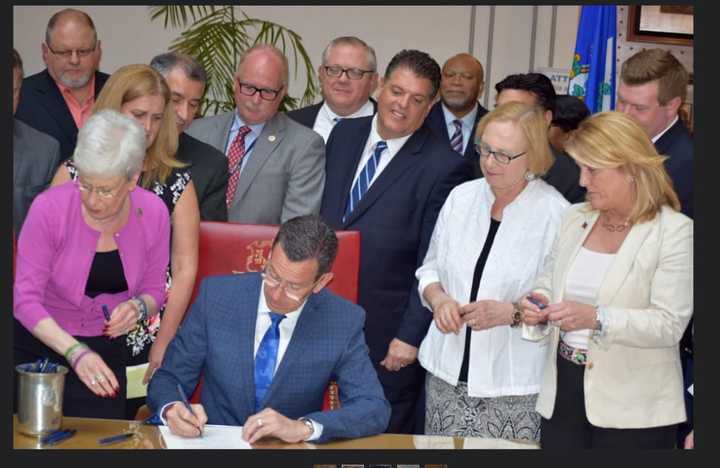“Our nation is facing a prescription painkiller and heroin overdose epidemic. Connecticut is not immune," Malloy said. "That’s why this bill builds upon our past efforts that we have made to prevent drug abuse and addiction, to educate the public about the dangers of prescription drug misuse, and to save the lives of those who suffer from addiction. These are critical steps forward."
The legislation, Public Act 16-43, is comprehensive in nature and incorporates several provisions, including:
- Limiting the prescription of opioid drugs by: prohibiting for adults an initial prescription of opioid drugs for longer than seven days, for minors any prescriptions of opioid drugs for longer than seven days and requiring the prescriber to discuss the risks associated with the drug with the patient and custodial parent and allowing a prescriber to give more than a seven-day supply of opioid drugs if the acute or chronic pain condition requires it;
- Requiring municipalities to update their emergency medical services plans to ensure that emergency first responders are equipped with and prepared to administer the overdose reversal drug naloxone;
- Prohibiting commercial health carriers from requiring prior authorization for coverage of naloxone; and
- Requiring the Alcohol and Drug Policy Council’s state plan to include a goal of reducing the number of opioid-induced deaths in the state.
Led by Dr. David Fiellin of Yale, this effort will be shaped by addiction experts and state agency leaders, and will include input from local and national experts, as well as the general public.
The group will be responsible for developing a three-year strategy for the state on opioid addiction and overdoses. It will emphasize strategic initiatives to prevent and treat addiction based on evidence, public input, and judgment about where efforts can have the most impact.
Commissioner Miriam Delphin-Rittmon of the Department of Mental Health and Addiction Services commended Malloy and legislature for approving the legislation.
“This legislation continues to build on comprehensive strategies that will help us to address this epidemic,” she said. “It increases access to the lifesaving medication Narcan and limits access to prescription opioids. The legislation provides us with additional tools needed to combat the epidemic.”
Commissioner Joette Katz of the Department of Children and Families said Connecticut children have been severely affected by the opioid epidemic.
“The majority of children who enter state care come from families with a substance use disorder, and the rapid rise in opioid addiction is cause for real alarm,” she said.
Click here to follow Daily Voice Bridgeport and receive free news updates.
